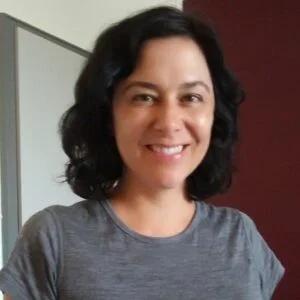Implementation Science Center for Cancer Control Equity
The Implementation Science Center for Cancer Control Equity (ISCCCE) is one of seven such centers funded by the National Cancer Institute Moonshot Initiative. ISCCCE aims to develop sustainable strategies for ensuring that all patients have access to evidence-based cancer prevention and control.
Trainees

Lynn N. Ibekwe is a postdoctoral research fellow whose primary research interest is to reduce the disproportionate burden of cancer morbidity and mortality among Blacks and African Americans in the United States. She pursues research geared towards (1) documenting individual and contextual level determinants of racial and ethnic cancer-related disparities, including investigating racism as a fundamental cause of such disparities; (2) developing and testing culturally relevant cancer prevention and control interventions in community and clinical settings; and (3) using implementation science, through a health equity lens, to improve implementation of evidence-based interventions (EBIs) in real-world settings, including explicitly focusing on structural racism as a determinant of inequitable adoption, implementation, and sustainability of EBIs.
Dr. Ibekwe holds a dual academic appointment as a Cancer Prevention Fellow within the Department of Social and Behavioral Sciences at Harvard T.H. Chan School of Public Health and the Kraft Center for Community Health at Massachusetts General Hospital. Dr. Ibekwe obtained a PhD in Behavioral Sciences from The University of Texas Health Science Center at Houston School of Public Health, an MPH in Social and Behavioral Sciences from Boston University, and a BA in Medicine, Health, & Society and Sociology from Vanderbilt University.
Lynn is project lead on the Tools to Close Screening Gaps pilot.</e…

Bomy Yun is a research assistant working with Drs. Karen Emmons and Lynn Ibekwe on a study investigating the use of digital tools to improve cancer screening gap closure in community health centers. She is an MPH student at the Harvard T.H. Chan School of Public Health and comes from Seattle where she has 10 years of experience as a primary care provider and health informaticist at a community health center.

Adjoa Anyane-Yeboa was most recently a Gastroenterology Fellow at the University of Chicago Medicine. She was previously a Chief Gastroenterology Fellow at the University of Chicago, and Chief Medical Resident in the Department of Internal Medicine at the University of Illinois at Chicago. Dr. Anyane-Yeboa is focused on public health advocacy, with the goals of advocating in the public sector, leading diversity retention and recruitment efforts, and designing health disparities research, to create policy and develop initiatives to eliminate disparities in minority patients with gastrointestinal disorders. She has a special interest in achieving equity in health outcomes for minority patients with gastrointestinal disorders, such as inflammatory bowel disease. Her community service initiatives have included work with the Urban Health Project (Chicago) and Closing the Health Gap of Greater Cincinnati. Dr. Anyane-Yeboa received her medical degree in 2012 from the University of Cincinnati College of Medicine, Cincinnati, OH, and completed her internal medicine residency at the University of Illinois, Chicago, in 2015. Adjoa is the principal investigator on the pilot study focused on preparing for the updated USPSTF colorectal cancer screening guidelines.

Natalie Smith aims to advance public health by improving the adoption and implementation of evidence-informed programs and policies. Her research program emphasizes applying a variety of decision science methods to implementation and dissemination related questions, including economic evaluation, simulation modeling, and stated preference methods. She earned her PhD in Health Policy and Management and her MS in Biostatistics from UNC Chapel Hill. Her work is currently supported by a K99 from the National Cancer Institute, and from 2021-2023 she was a T32 Fellow on the Harvard Cancer Prevention Fellowship.

Jen Cruz is a Population Health Sciences doctoral student in the Social and Behavioral Sciences department. She is passionate about the intersections of gender equity, community engagement, and health promotion with a focus on cancer-related disparities. With her background in Psychology and Epidemiology, her research considers both micro and macro-level determinants of health and is conducted through a social justice lens. Through her graduate studies, she plans to further investigate how grassroots community involvement can be leveraged to influence policies and practices that address health disparities in low-resource settings. Jen was raised in Wapato, WA – a small, rural community that continues to inspire her academic work and organizing efforts. She received her BA in Psychology from Seattle University and her MPH in Global Health Epidemiology from the University of Michigan School of Public Health.

Catherine S. Nagawa studies how social determinants of health influence health behavior in vulnerable populations using mixed methods. Her research area of focus is cancer prevention and early detection. Her work aims to inform the implementation and dissemination of tailored behavioral interventions to improve health outcomes. During her fellowship, she seeks to learn how to integrate various data sources, such as electronic health records, surveys, and interviews, to assess the feasibility and cost-effectiveness of health interventions. Catherine received her Ph.D. in Clinical and Population Health Research from UMASS Chan Medical School, MS in Epidemiology from the University of Massachusetts Amherst, and a BS in Statistics from Makerere University.

Dr. Mueller is a research fellow funded through the Cancer Prevention Fellowship from the National Cancer Institute. She holds a Master’s Degree in Anthropology and a Ph.D. in Public Health. Her doctoral work centered on cancers that are increasing in younger populations and tested medical materials to maximize patients’ understanding of risk and testing results. Her current research focuses on implementation science methods to increase the use of evidence-based practices in low-resource settings, under the mentorship of Dr. Karen Emmons.